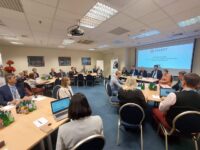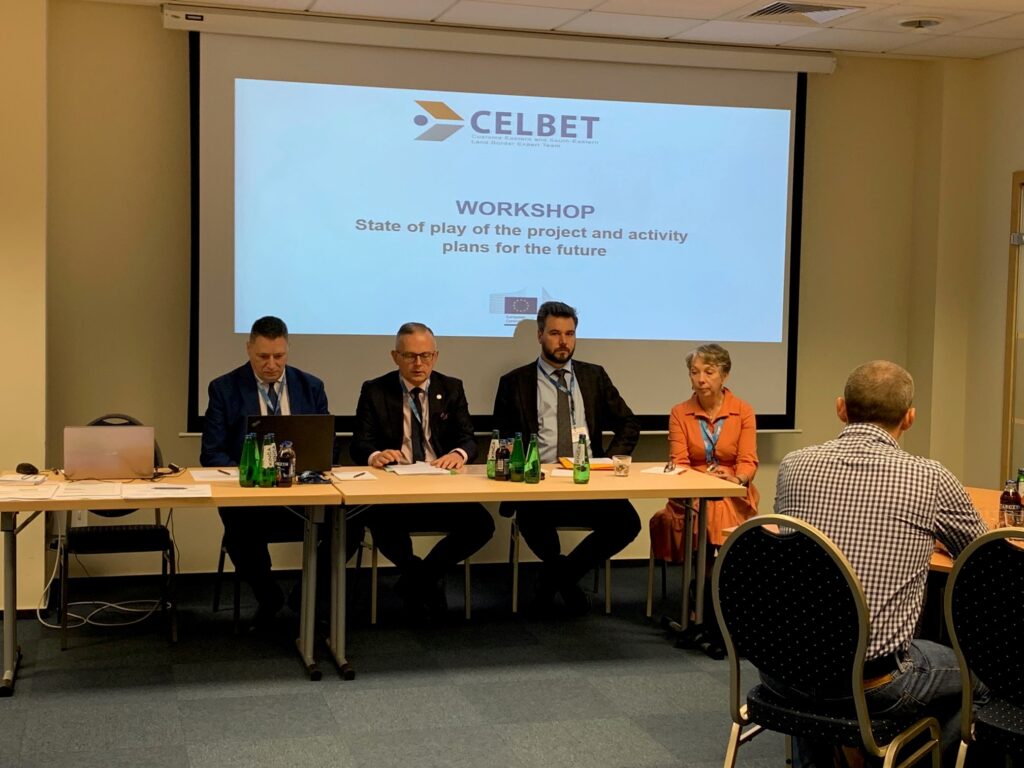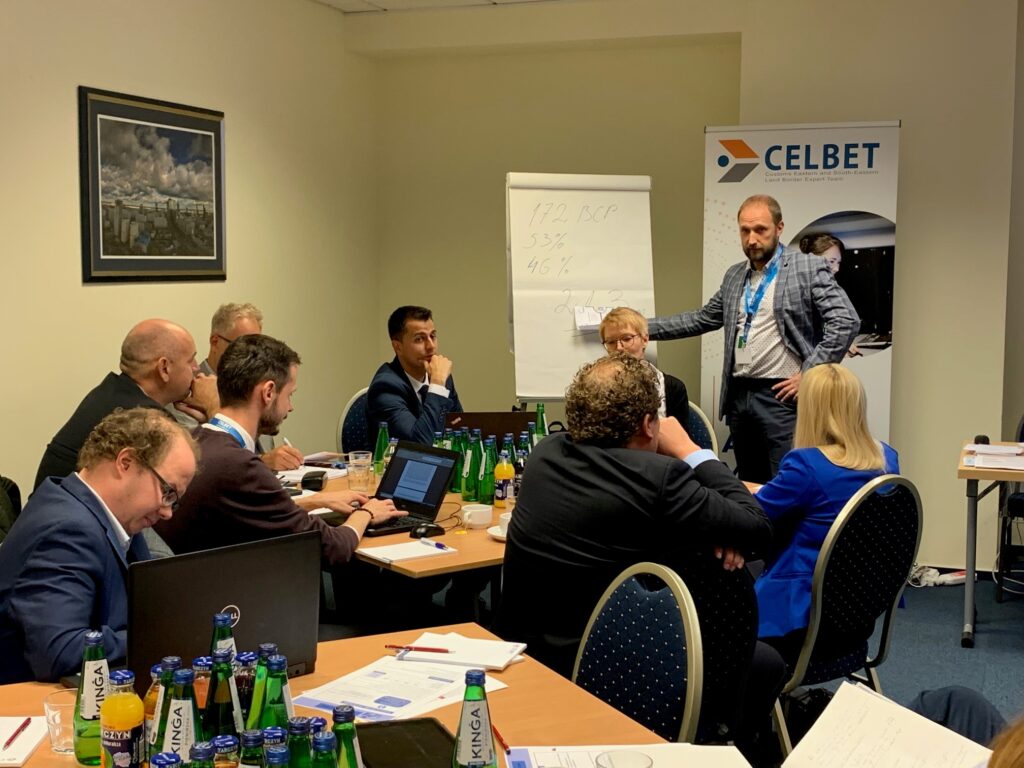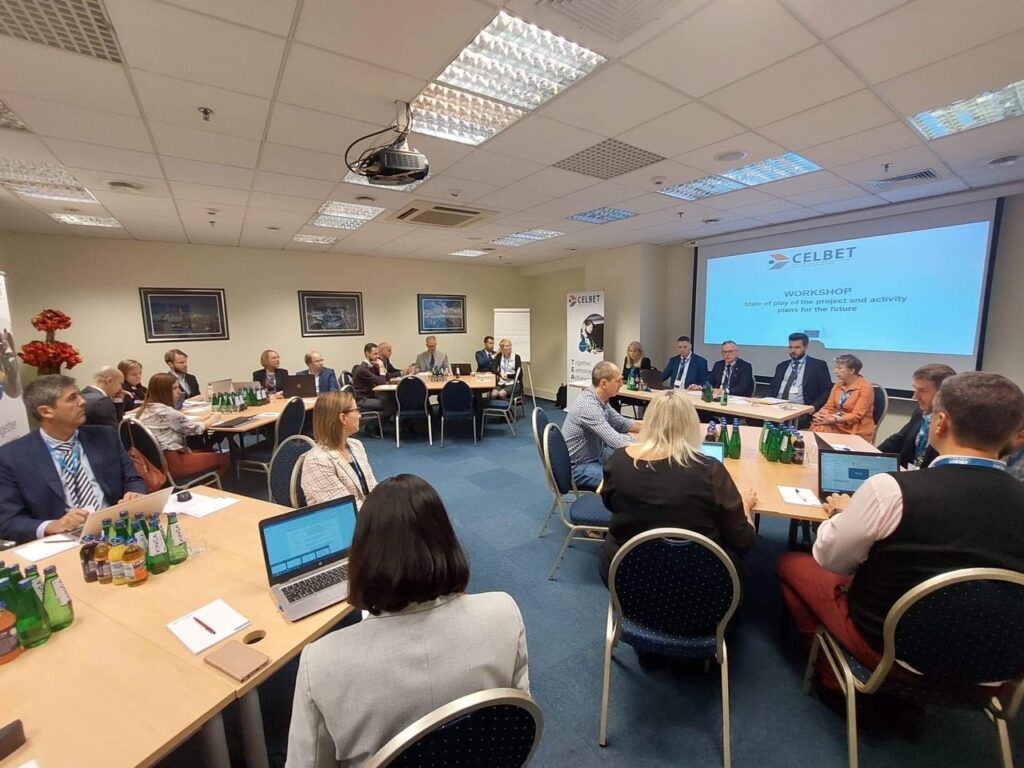Why is it beneficial to join CELBET ? This and other questions were asked during first CELBET Workshop for EU countries interested in CELBET +.
CELBET Workshop was organized on 5 of October in CELBET office in Warsaw. The event was dedicated to the representatives of those countries which are not CELBET members yet and those customs officers who work on airports and ports.
Representatives of Customs from Belgium, Bulgaria, Czech Republic, Croatia, Cyprus, Denmark, Estonia, Finland, France, Germany, Greece, Hungary, Italy, Latvia, Lithuania, Netherlands, Poland, Portugal, Slovakia, Slovenia and Sweden but also European Commission and ETCIT (Customs IT Collaboration) participated in Workshop.
The meeting was opened by Head of CELBET Andras Bartha, who presented main assumptions of the Business Case and new structure of CELBET +.
Head of CELBET also explained what does it mean to join CELBET:
– We look for challengies and difficulties and we solve it by a common thinking.
Welcome speech was also given by the Deputy of National Revenue Administration Mariusz Gojny:
– The last two Steering Committees were very significant in terms of the strategic decisions and foresight discussions. Almost one year ago we adopted the CELBET Feasibility Study Report which brought us to the substantial conclusions, that the permanent structure is needed to secure the future of CELBET.
Mr Mariusz Gojny also highlighted the meaning of CELBET project and purpose of the Workshop:
– CELBET has sufficient tools and know-how to play a significant role especially in the current geopolitical situation in Europe, in face of the war in Ukraine. CELBET has sufficient tools and know-how to have substantial impact on the work of our Customs Administrations and wider, on the future of Customs Union which is facing a profound reform. You are here to learn about the future of CELBET, to get familiarized with work packages of all CELBET Teams, to establish the closer working relations with CELBET experts.
Each Team Leader had a short presentation of the activities that were organized by the team and outlined plans for the future. All the information and statistics made participants more interested in the project and encouraged them to ask questions: how the procedure of joining the project look like?; what is the time needed to make procurement of equipment: what can I do in CELBET that I can not do in other project?; what about sending officers within the missions?; etc.
Team leaders, Head of CELBET and Grant Coordinator gave complete answers to all questions. Presented overview of the core of the CELBET, underline the benefits from being part of the project and possibility for the participants to exchange contacts, experiences and opinions in the discussions, appeared to be first good step in enlargement of CELBET.
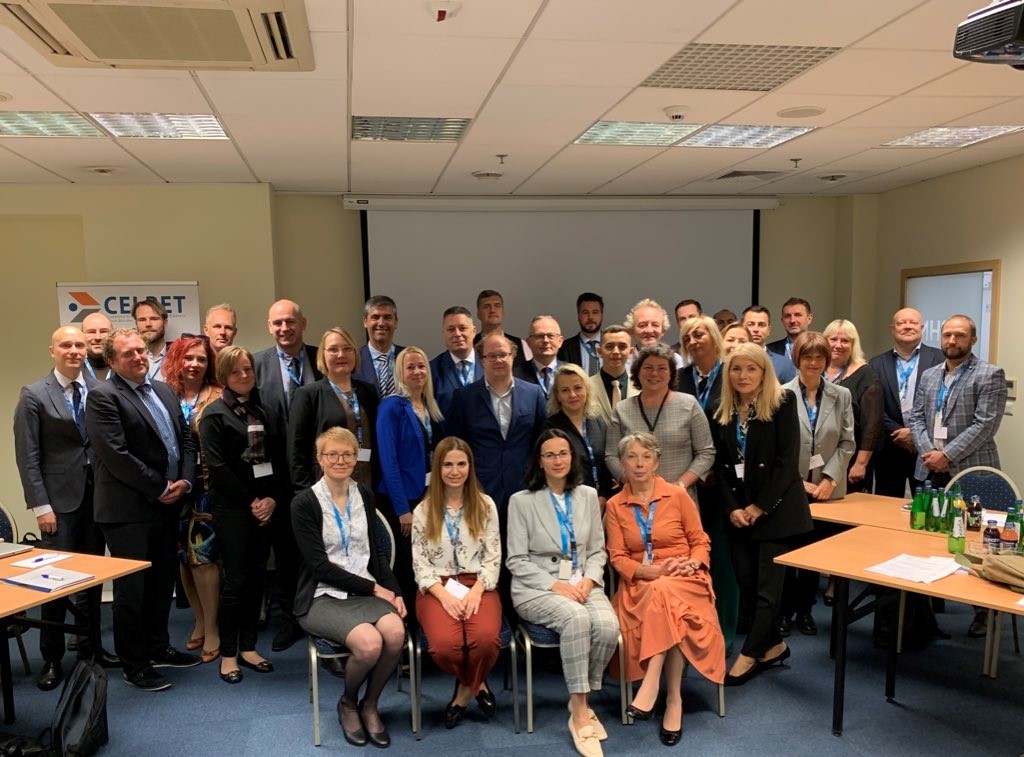
![]()

